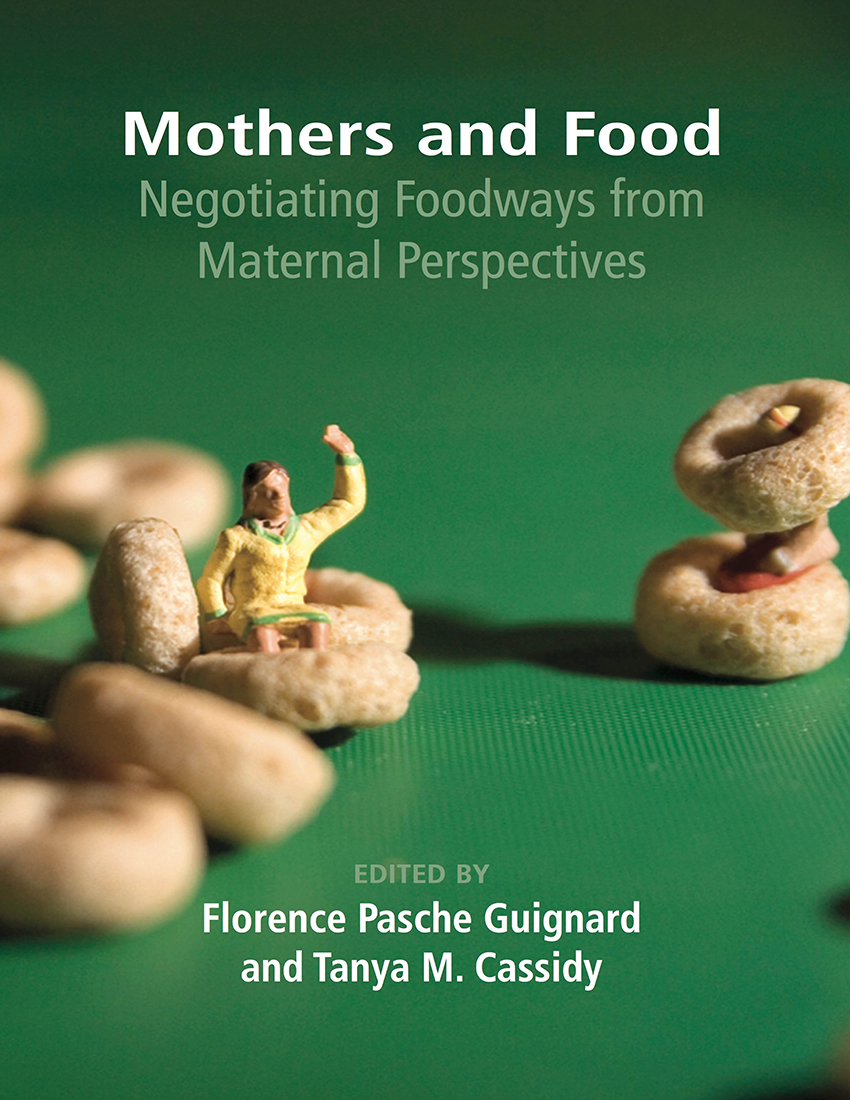
Price: $39.95
Page Count: 300
Publication Date: April 2016
ISBN: 978-1-77258-002-0
This collection explores the ways that a mother’s role in food procurement, food preparation, and meal serving becomes a crucible for gendered, class, and racial dynamics that reflect public and private agendas. Mothers are shown to be agentive actors whose mothering work repurposes, repackages and rewrites dominant ideologies through everyday activity. The authors creatively demonstrate important ways that mainstream discourse and the dynamics of the neoliberal project articulate with mothers’ lives and identities in their kitchens and at their dinner tables.
—Janet Page-Reeve, Research Assistant Professor, University of New Mexico
This manuscript effectively brings together the multifaceted and socially/culturally complex topic of mothering and food. Taking a global perspective that includes recognition for the constraints of social expectations and economics, the collection highlights the relationship between mothers and food while also critiquing the naturalization of this association. It is a powerful contribution to maternal studies, sociology and the anthropology of food.
—Melinda Vandenbeld Giles, University of Toronto, Editor of Mothering in the Age of Neoliberalism
Acknowledgements
Introduction
Florence Pasche Guignard and Tanya M. Cassidy
I. DOMESTIC FOOD WORK AND THE FAMILY MEAL
Feeding without Apology:
Maternal Navigations of Distal Discourses in
Family Meal Labour
Amber E. Kinser and Katherine J. Denker
Feeding the Squeezed Middle-Class Family:
Maternal Stress, Dilemmas, Contradictions,
and the Third Shift
Neri de Kramer
The Critical Kitchen:
Public Kitchen Discourses and Private New Zealand Families
Rachel Lamdin Hunter and Kahurangi Dey
.
Nurturing the Sustainable Family:
Natural Parenting and Environmentalist Foodways in
Francophone Contexts
Florence Pasche Guignard
II. HEALTH, MEDICINE, AND NUTRITION
Mothering Discourse and the Marketing of Dairy
as a Cancer-Fighting Food
Alissa Overend
Vigilance and Valour in the Kitchen:
Feeding, Eating, and the Intellectual Work of Motherhood
in Food-Allergic Families
Heather Hewett
Feeding the Family When the Mother Is Sick
Catherine Morley
PumpMoms:
Technology, Stigma, and Support
Tanya M. Cassidy
Maternal Fruit and Vegetable Consumption in Canada:
Differences between Anglophones and Francophones
Davod Amhadi Gheidari, Gale E. West,
and Simon Langlois
:
III. FOOD SECURITY IN INSECURE CIRCUMSTANCES
Cooking to Win the War:
Canadian Mothers in the Second World War
Tracey Leigh Dowdeswell
Secrets of a Food Storage Mom:
Mormonism, Motherhood, and the Mainstreaming
of Emergency Preparedness
Deborah Whitehead
Mothers as Managers of Scarcity:
Poverty and Food Security in Brazil
Simone Bohn and Luciana Veiga
Feeding the Family in the Face of Climate Change:
Mothers of Rural Southwestern Uganda
Florence Kyomugisha, Bernardine Atugabirwe,
and Caroline Nshemerirwe
When Mothering Does Not “Measure Up”:
Breastfeeding in the Context of Obesity and
Income-Related Food Insecurity
S. Meaghan Sim, Megan Aston, and Sara F. L. Kirk
IV. REPRESENTATIONS, COMMUNICATION, AND MEDIA
Mothers as Trickster Figures Who Hide
Vegetables in Kids’ Food
Vivian Halloran
What Are We Feeding Our Children
When We Read Them a Book?
Depictions of Mothers and Food in
Contemporary Australian Picture Books
Laurel Cohn
Gluten-Free Casein-Free:
Food, Autism, and Challenges to Scientific
Motherhood and Neoliberalism
Emilie Zaslow
I Feed Therefore I Am:
Mothers, Pasta, and Advertisements
Simona Stano
V. SPACES, BORDERS, ENVIRONMENTS, AND MATERIALITY
Mothering and Food Work in the Nuclear Family Home:
A Spatial Analysis of Feeding Children
Jennifer L. Johnson
Yamatji Mothers Negotiating Economic and Social Capital
Melanie Dembinsky
(Re)Defining Femivorism:
Connections between Food, Motherhood, and Spirituality
Audrey Lundahl
Becoming Mother, Becoming Matter:
The Agential and Affective Capacity of Food in
Performances of the Good Mother
Emilie Dionne
About the Contributors
Florence Pasche Guignard completed her Ph.D. in the study of religions at the University of Lausanne (Switzerland). In 2012, she joined the Department for the Study of Religion at the University of Toronto to complete her postdoctoral research project funded by the Swiss National Science Foundation and entitled “Natural Parenting in the Digital Age. At the Confluence of Mothering, Religion, Environmentalism, and Technology.” Her interdisciplinary research engages issues at the intersection of religion, ritual, gender, embodiment, media and material culture.
Tanya M. Cassidy is a Canadian sociologist who received her doctorate from the University of Chicago. Recently she won an EU Horizon 2020 Marie Sklodowska Curie Fellowship housed at the University of Central Lancashire (UCLan) in the United Kingdom. She continues to be an Affiliated Researcher in the Department of Anthropology at the Maynooth University (Ireland), where she held her Cochrane Fellowship, as well as an adjunct Professor with the Department of Sociology, Anthropology, Criminology at the University of Windsor, Ontario (Canada).


